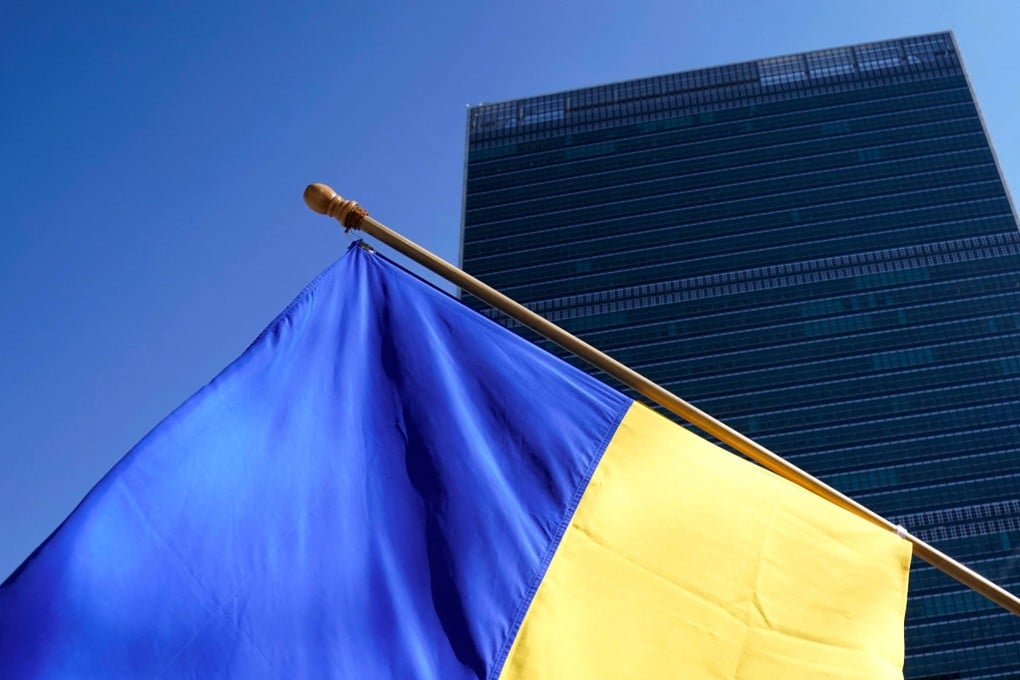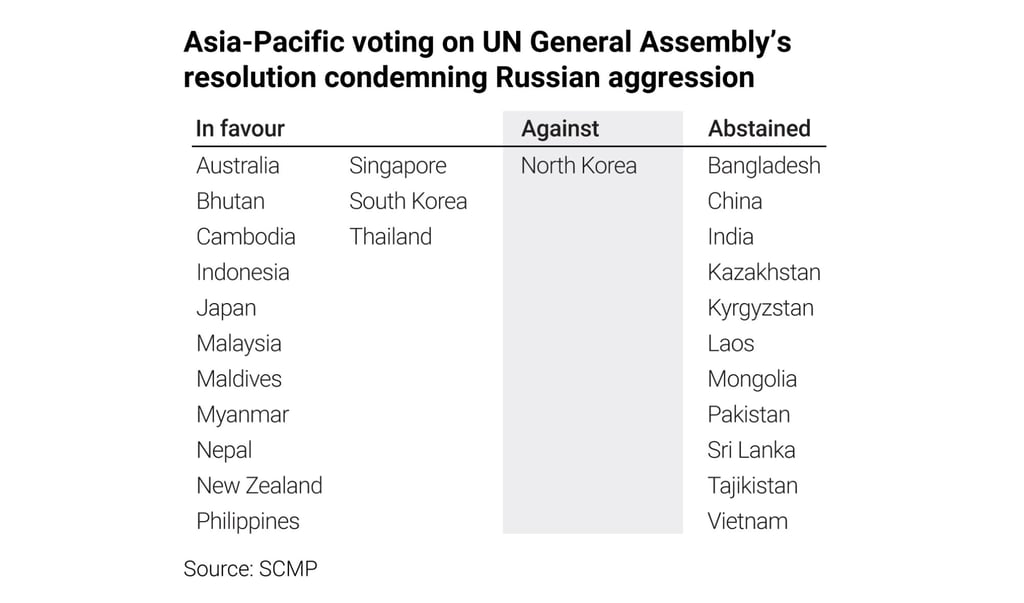Ukraine crisis: Asian countries explain their positions after historic United Nations resolution
- The United Nations General Assembly adopted a resolution – backed by 141 countries – sending the firmest signal that Moscow’s actions are globally condemned
- Apart from Russia, four other nations rejected the resolution and several countries abstained, including China, India and 9 other Asian nations

The United Nations General Assembly’s adoption on Wednesday of a resolution that “deplores in the strongest terms” Russia’s “aggression” is the firmest signal yet to Moscow that it faces global isolation for its actions in Ukraine.
The resolution was backed by 141 countries – well over the 100 countries that in 2014 supported a similar general assembly vote condemning Russia’s annexation of Ukraine’s Crimean peninsula.
Apart from Russia, four other nations rejected the resolution: Eritrea, North Korea, Syria as well as Belarus – a neighbour of Ukraine that is playing a significant role in Russia’s invasion.
UN watchers scrutinising the vote said there was much to glean not just from the countries that backed the resolution, but also from the countries that abstained from the vote.
The likes of Cuba, a traditional Moscow ally which backed Russia in the 2014 vote, chose to abstain this time around. Similarly, Armenia, Zimbabwe, Sudan, Nicaragua and Bolivia – all Moscow backers in 2014 – abstained. Venezuela, also previously Moscow’s ally on this issue, did not vote as its UN voting rights have been suspended for non-payment of dues.

In Asia, Australia, Bhutan, Cambodia, Indonesia, Japan, Malaysia, the Maldives, Myanmar, Nepal, New Zealand, the Philippines, Singapore, South Korea and Thailand voted in favour of the resolution.